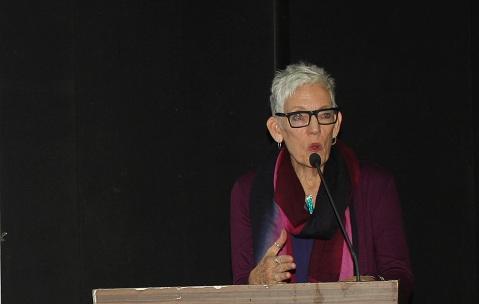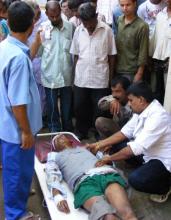Gopal Subramaniam, Judge of the Supreme Court of India and Former Solicitor General of India speaking at the Trafficking panel at the International Bar Association Annual Conference in Boston said, “A state which permits trafficking needs to be visited with economic and political sanctions, and that is really the fundamental duty of all of us as collective instruments in the legal profession.” Such is the gravity of the activity.
The Anti Trafficking-in-Persons Conclave 3::Moving Forward Together on its second day today conducted a panel Prosecution, collaboration across the borders to examine the prosecution process of human traffickers in situ.
After probably 60 years of crime and decades of efforts we have now a very good and comprehensive law against human trafficking in the country. The section 370 incorporated in the Indian Penal Code not only prohibits trafficking in all its worst forms but also prescribes punishments that go up to life imprisonment. But law by itself has never been a social change maker and it is nothing but a piece of paper unless it is enforced. To put a nail on the head prosecutions are never happening.
Speaker Florrie Burke, Chair Emeritus of the Freedom Network on prosecution of human traffickers said, “I must offer a challenge to the region said that people are overwhelmed with cases. They are not behind number of cases of prosecution happening anywhere in the world or anywhere near the number of cases that we know are out there. And I would like to issue a challenge to the region to say you must prosecute the cases, and why must you, because I feel that only successful prosecutions serve as a deterrent to traffickers. If traffickers see that nothing is happening and there are no penalties; what’s to prevent them from just keeping on? The second thing that I think is so crucial and we are focusing on prosecution its that its justice. Its justice for the victims.”
In India between the years 2008 and 2012 some 452679 cases of child trafficking have been reported and only 250006, less than 6 per cent of the reported cases have been prosecuted.
Throwing light on a challenge faced, panelist Doma Bhutia, Director, Human Rights Law Network, Sikkim Branch said, “....the challenges in terms of prosecution, the investigation fizzes out because in India most of the police personnel are not well trained in investigation as to how to write the 121 statement. So when the victim goes to the police station in the dead of the night, I have seen the appalling manner in which they take down the statement. Its halfheartedly done. This is the area where the accused gets a brownie point. This is the gray area of the criminal justice system.”
Of the panelist who spoke on the challenges of prosecution on human trafficking cases, on necessary collaborations with stakeholders and opportunities of cross-border collaboration and challenges were Justice Md. Miftah Uddin Choudhury, Supreme Court of Bangladesh, Saptarshi Biswas, IJM, Kolkata, Justice Abhay Manohar Sapre, Chief Justice of Gauhati High Court, Assam and Babloo Loitongbam of Human Rights Alert. The panel was moderated by Advocate Bhuwan Ribhu.






Add new comment